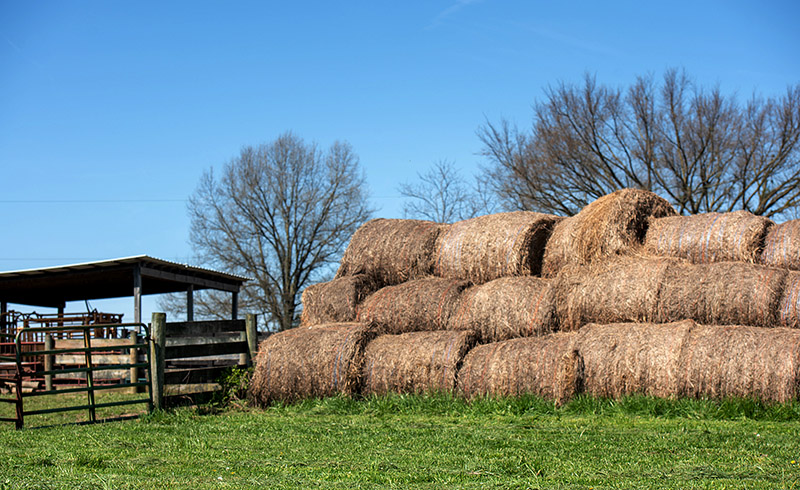To preserve the land, soil, and water and ensure the best quality forages for livestock, the Berea College Farm pastures and crop land is fully USDA Certified Organic. The transition to Organic production began in 2009 and was completed in 2019.
Practices such as no-till or conservation tillage reduce soil erosion, while livestock groups graze in a way that reduces stress on the soil and adds fertilizer to pasture lands. Students working on or engaging in lab assignments on the Farm can learn about each of these practices and how they benefit the Farm enterprise.
In addition to livestock, the Berea College Farm also produces some row crops. Corn, oats, and wheat are a few examples of crops grown for human consumption. Crops grown on the Farm may be processed and marketed through the Farm Store, sold directly to consumers or marketed to wholesale buyers. Alfalfa, orchard grass, red clover, sorghum sudangrass and other forages are grown for livestock grazing or hay and haylage production. Crop diversity helps improve and maintain soil quality while also providing nutrient-rich forages for grazing animals.
Each enterprise on the Farm relies on safe and reliable equipment and machinery. Students learn to use tractors and attachments such as mowers, seeders and tillage implements. With staff training and supervision, students can also learn maintenance and basic repair techniques that keep each machine or attachment running safely and efficiently.

By the Numbers
About 600 rolls of hay/haylage are produced on the Farm each year. The cattle herds consume most of this during the winter months.
